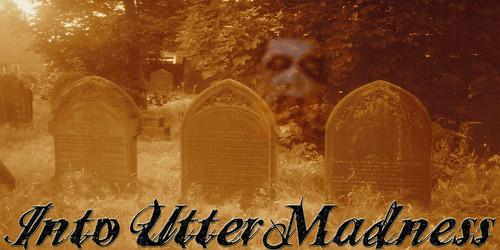Through The Eyes Of My Brother
My sister-in-law, the normal contributor to this blog, commented a few months back about how, in my words, those in the so called 'educated' circles have begun to rely too much on consensus when it comes to the guiding documents used by researchers today. Her example centered on, if memory serves me correctly, archeological and anthropological discoveries and how they don't always conform to consensus, and how these discoveries are too often disregarded for that very reason.
I commented at that time that religion has a similar distraction. I am sure that there are those who saw my comment and thought I was bashing organized religion or religion in general. This couldn't be further from the truth. I have very strong religious convictions and even belong to an organized Christian sect. It is in these following paragraphs that I will therefore explain what I meant by my comment.
Most Christian sects in today's world, knowingly or otherwise, follow creeds established more than 300 years after the events that take place in the 'The Gospels' of the New Testament. Most notably, the Nicene Creed endeavored to bring a badly splintered Christian following into one Universal Church. This creed deals, among other things, with the nature and being of God, His relationship with his earthly children, and the official cannon to which the church would adhere.
It wasn't long (relative) before people such as Martin Luther, and later Charles Wesley, began having troubles with how the clergy of their times taught scripture as seen through the creeds of the third century, and how they saw the Gospel of the Lamb taught in the New Testament. The Universal Church was no longer universal and soon, many off shoot congregations began to form. Those who disagreed with the manner of baptism created their own sect while others, who focused on the Day of Pentecost, formed theirs. Despite these break-off sects, and the past 1700 years, the influence of those third century creeds have completely penetrated almost all of Christianity so as to make it very difficult for sects that don't believe that those creeds were inspired to be taken seriously.
The traditions of the past 1700 years have their problems. I will mention only a few here. First – The person who called the religious leaders of the time in 325 AD was not a person of faith so much as he was a politician. While Constantine may have had the best of intentions in calling the convention at Nicaea politicians rarely have truth as their goal, but are more interested in re-election and popularity. Constantine may have converted to Christianity, but many argue that that was just one of the religions to which he adhered. Secondly – The decisions made at this, and its subsequent conventions, is essentially a consensus; a religion of popularity. As a result, many left disappointed in the process and outcome. Monks were recorded as lamenting at the loss of their God. And Thirdly - too many of the religious leaders who attended this convention were particular in the agenda that they wanted to see passed. They weren't interested in finding truth as much as making the masses believe and act in their form and manner. I find this very interesting considering that when our Savior walked the earth, the group he decried the most were the learned leaders who had lost the true meaning of scripture and forced their personal views on the Jews in general. The Sanhedrin was the learned scholars, rabbi, and congregational leaders of the time. They, who taught of the coming Messiah, from the scriptures and learning passed down over thousands of years, did not anticipate the Messiah in any other form than the one upon which they had agreed. What a great opportunity missed!
Now before you begin to think that I am bashing the strongly held religious beliefs of another, please put your hearts to rest. That is not my intention. I only ask the reader to consider the influence of the 3rd century creeds on their personal religion, and compare them to scripture. Then ask for guidance from the only one who won't lie.

